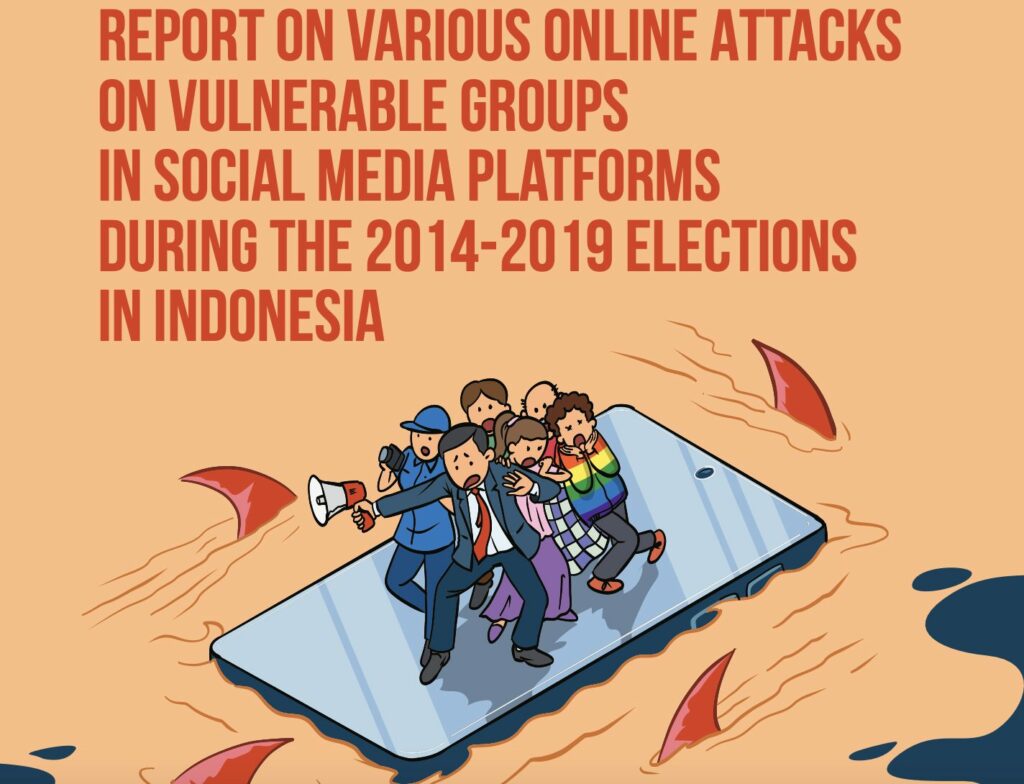Online attacks are increasing rapidly against vulnerable groups as the main targets, especially during the general election. Online attacks that occur subtly by targeting the victim’s psychology are one of the most common cases. Apart from anonymity, the increase in online attacks has also subtly increased due to political battles taking place more online than offline sphere.
Through literature studies, SAFEnet mapping how online attacks on vulnerable groups are very diverse, both in terms of the type of attack and its impact. This research shows that most subtle online attacks occur in the form of hate speech. This happened massively and systemically during the election period with specific targets for vulnerable groups (women, ethnic minority groups, religious minority groups, journalists, activists, gender minority groups and people with disabilities).

This research shows that various classifications of hate speech content towards vulnerable groups were found, including racist content (targeting ethnic minorities), sexist and misogynist content (targeting women), xenophobic and anti-immigrant content (targeting refugees or asylum seekers), homophobic content , transphobic and biphobic (targeting gender minority groups), classist content (demeaning certain economic/social classes), ablism content (targeting people with disabilities), and anti-justice and anti-democratic content (targeting human rights defenders and journalists).
Hate speech during the election period results in discrimination against these vulnerable groups and has lasting impacts such as stigma and the reproduction of fake news to attack opposing parties. Therefore, a special mechanism is needed related to regulating content moderation in Indonesia considering that hate speech and various types of online attacks have a very dangerous impact, both on vulnerable groups, individuals and the general public.
Hate speech in the online realm is certainly not only the responsibility of platform users, but also cannot be separated from the responsibility of social media platforms in implementing content moderation mechanisms. In addition, content moderation regulations made by the Indonesian government must be made specific and clearer in order to minimize the impact of online attacks on broad groups and in general.
You can access the full report here for Indonesian, and here for English.
